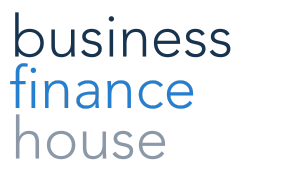Unsecured business loans can be a valuable financial solution for small and medium-sized enterprises (SMEs) looking to grow and expand without the need for collateral. These loans are often quicker to obtain and come with fewer restrictions compared to secured loans. However, qualifying for an unsecured business loan requires careful preparation and understanding of the lender’s criteria. In this blog, we’ll explore the essential tips and requirements to help you qualify for an unsecured business loan.
What is an Unsecured Business Loan?
An unsecured business loan is a type of funding that does not require collateral. Unlike secured loans, which are backed by assets like property or equipment, unsecured loans are granted based on the borrower’s creditworthiness and business financials. This makes them accessible to businesses that may not have significant assets to offer as security.
Unsecured business loans offer several benefits, including quicker approval times, less paperwork, and the ability to retain ownership of business assets. They are commonly used for various purposes, such as managing cash flow, purchasing inventory, and funding business expansion.
Key Requirements for Unsecured Business Loans
To qualify for an unsecured business loan, lenders typically look for several key criteria:
- Credit Score: A strong credit score is crucial for securing an unsecured business loan. Most lenders prefer a credit score of at least 650, but higher scores can increase your chances of approval and result in better loan terms.
- Business Financials: Lenders will review your business’s financial health. This includes cash flow statements, balance sheets, and income statements. These documents provide information about the financial health of your company and your potential to repay the loan.
- Business Plan: A solid business plan that outlines your business strategy, growth projections, and how you intend to use the loan funds is essential. A well-crafted business plan shows lenders that you have a well-defined goal and plan for your business.
- Time in Business: Most lenders require that your business has been operational for at least one to two years. This track record shows that your business is established and has a history of generating revenue.
- Revenue: Consistent revenue streams are a positive indicator for lenders. They typically look for a minimum annual revenue threshold, which can vary depending on the lender and the loan amount.

Tips to Improve Your Chances of Qualifying
- Improve Your Credit Score: Make sure that your credit score is as high as possible before applying for a loan. This can be achieved by paying off existing debts, correcting errors on your credit report, and managing your credit utilisation ratio.
- Prepare Detailed Financial Statements: Accurate and up-to-date financial records are crucial. Make sure your financial statements are thorough and reflect the current financial health of your business.
- Strengthen Your Business Plan: Your business plan should be comprehensive and detailed. Include realistic growth projections, a clear repayment strategy, and how the loan will contribute to your business’s success.
- Build Strong Relationships with Lenders: Establishing a good relationship with potential lenders can be beneficial. Networking and maintaining open communication can help build trust and improve your chances of loan approval.
- Demonstrate Stable Revenue: Showing consistent and reliable revenue streams reassures lenders of your business’s ability to repay the loan. Highlight any growth trends and major contracts or agreements that secure future income.
Common Mistakes to Avoid
- Incomplete Applications: Make sure all required documents are submitted and the application is fully completed. Incomplete applications can lead to delays or rejections.
- Ignoring Credit Issues: Address any credit issues upfront rather than hoping they go unnoticed. Transparency is key in building trust with lenders.
- Overestimating Revenue Projections: Avoid overly optimistic revenue forecasts that are not supported by data. Realistic projections are more credible.
- Not Looking Around: Compare different lenders to find the best terms and conditions. Don’t settle for the first offer you receive.
Qualifying for an unsecured business loan requires careful preparation and a clear understanding of the lender’s requirements. By focusing on improving your credit score, preparing detailed financial statements, strengthening your business plan, building strong lender relationships, and demonstrating stable revenue, you can enhance your chances of securing the loan you need.
Contact Business Finance House today to explore our tailored business finance solutions. Our experts are here to guide you through the process, ensuring you get the best terms for your growth and success.






